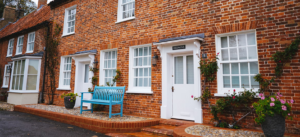What is Classed as a Second Home?

Any property you own, in addition to your main residence, is generally regarded as a second home. There’s a whole host of reasons why people buy second homes; for investment and buy to let, holiday homes, or as a part owner with a family member.
If you’re thinking of buying a second home, there’s a few things you need to consider before going ahead:
- What type of mortgage will you need?
- Are you planning to rent the property?
- What are the rules on stamp duty for second homes?
- Are you buying a second home for your children?
What type of mortgage will you need?
There’s a few different ways you can fund the purchase of a second home if it’s for your own private use rather than for investment or buy to let.
Of course, you can simply pay cash and buy it outright if sufficient funds are available. If you have a small or no outstanding mortgage on your main residence, remortgaging might be a good option to consider as long as the costs for breaking any existing interest rate terms are not too high.
If you’re over 55 you could also look at an equity release scheme such as a lifetime mortgage. This option allows you to release a lump sum from the equity in your main residence without having to make any monthly payments. Any interest accrued rolls up until the house is sold when you either pass away or move into a long-term care home.
Lots of lenders also offer second home mortgages, which, as the name suggests, can be used by anyone with an existing property who’s looking to buy another one. The deposit requirements for second home mortgages are normally higher (typically between 15% and 25%) and the affordability checks are usually more stringent than for first home mortgages.
The stricter requirements for second home mortgages are understandable, as your lender will want to be sure you can afford the repayments, especially if you already have an existing mortgage on your main residence.
Are you planning to rent the property?
If you’re planning to purchase a second home as a buy to let or as a holiday rental your lender will recommend a buy to let mortgage (BTL) as the most appropriate form of borrowing.
The deposit requirements for a BTL mortgage are usually the same as for second home mortgages (15% and 25%). However, affordability criteria is centred more on the property’s investment potential and the expected rental income it can generate.
Stamp duty rules for second homes
Since September 2022, stamp duty on second homes has been paid at a higher rate than you would normally pay for your main residence, with an additional 3% surcharge. Stamp duty is a tax due whenever you buy property or land and is paid and assessed on a tiered basis. The higher the value of your property, the more stamp duty you pay.
For your main residence, the first £250,000 of its value is charged at 0%, for your second home this would be charged at 3% and so on, increasing through the remaining tiers. So, if you bought your first property for £200,000 you would have no stamp duty to pay, whereas for a second home you would owe £6,000.
This surcharge doesn’t apply on second homes if their value is below £40,000 and/or if it’s a ‘moveable’ property. If you’re planning to buy a caravan, mobile home or a houseboat then you won’t be liable for stamp duty (but you can’t get a mortgage for these homes either).
If you’ve bought a second home with a view to it eventually becoming your main residence, you still have to pay the additional 3% surcharge, however, if you sell your first property within 3 years you can claim a refund back from HMRC for this amount.
To see how this could work out for the second property you’re interested in buying, use our calculator below:
Stamp Duty Calculator
This calculator can tell you how much Stamp Duty Land Tax you will need to pay on your property purchase, whether you're a first-time buyer, a home-mover or in the market for an investment property.
Your stamp duty to pay is:
Your effective tax rate is
Now that you've worked out how much stamp duty is payable, it's a good idea to talk to a broker about your mortgage options. Their knowledge and expertise can help you make sure you aren't paying over the odds with all costs and fees factored in.
Buying a second home for your children
Helping your child get on the property ladder by either buying a property outright or as a part owner, whilst a wonderful gesture, will also count as a second home for tax purposes.
If you want to avoid this, it’s worth speaking with a mortgage broker to explore other ways of assisting them such as paying for their deposit and/or considering a guarantor mortgage where you can help them with their repayments if they experience financial difficulties during the term of the loan.
